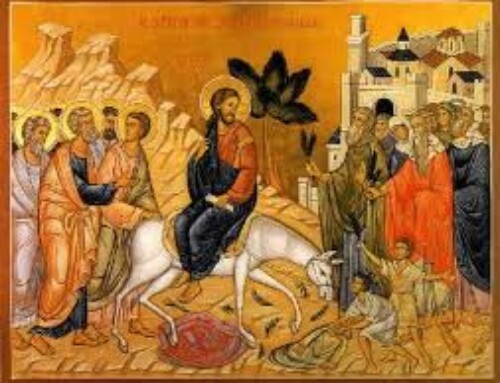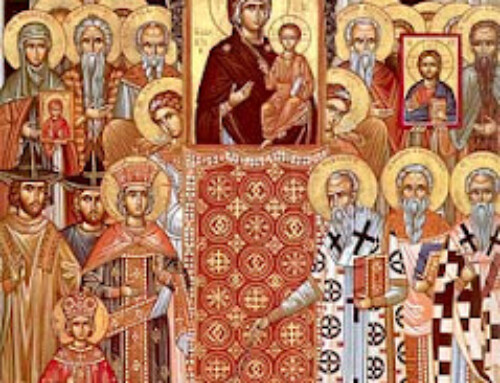الصفحة الرئيسية
المطران
إيماننا وعقيدتنا
جديد في الموقع
Word Magazine March 1981 Page 17
WITH GENUINE REJOICING
Homily by Father James C. Meena
In the Parable of the Prodigal Son, emphasis is usually made either on the character of the Prodigal or the elder brother who stayed home and remained faithful to his father, or the father himself. But I would like to ask you to imagine that the Prodigal had a larger family than that mentioned in the parable. The rest of the brothers and sisters of the Prodigal, seeing the joy of their father would rejoice with him at the return of their sinful yet repentant brother. Genuine love would compel genuine rejoicing. In our Father’s house, so it is also.
Jesus attracted and ministered to the despised, to publicans and to sinners and this didn’t meet with the approval of the leaders of the community. They didn’t like the idea that this self proclaimed teacher and prophet would associate himself with those people whom they had ostracized. But despite their objections, Jesus continued His ministry and He told the Parable of the Lost Sheep, which is not unlike the Parable of the Prodigal Son. Readers of the fifteenth chapter of the Gospel of St. Luke will see that the Parable of the Lost Sheep and that of the Lost Coin are preludes to the Parable of the Prodigal Son. In the Parable of the Lost Sheep He said, “If a man has a hundred sheep and one of them is lost does he not leave the ninety and nine and go out and search to find the one that is lost and then, bearing him upon his shoulders he returns to his flock and he calls all of his friends to come and rejoice with him because the sheep that had been lost was now found.” Any business man will tell you that ninety-nine percent of an investment isn’t so bad but, despite the fact that only one percent of his flock was lost, his concern was so great that he went out to find that one lost sheep. The lesson is: “Joy shall be in heaven over one sinner that repenteth more than over ninety-nine just persons who need no repentance.”
Now the Church is the Kingdom of Heaven, the Parish a microcosm of that Kingdom. We are the family of that Prodigal Son. We are the friends of that shepherd. It falls to us to join with Him in genuine rejoicing over the return of the Prodigal and over the repenting of the sinners.
A second Parable precedes the Parable of the Prodigal Son forming a trilogy of Parables. A woman had ten silver coins and she lost one of them. Jesus asked the leaders of the community which woman would not sweep out the entire house and move all of the furniture and search high and low until she found that one coin and having found it go out and relate the tale to her friends so that they could be happy with her. Imagine, only one tenth of her treasury was lost and she still had nine parts of it and yet she searched high and low, until she found that one coin. Likewise says Jesus, “There is joy in the presence of the angels of God over one sinner that repenteth.”
Sin is absence from God. Repentance restores us to God’s family, to His flock, to His treasure house. The Church ministers to sinners, trying to make of them saints. We minister even to those who don’t show concern for the Church. When one begins to show signs of returning, of being found and restored we should rejoice with genuine rejoicing that grows out of love and out of awareness of our Father’s joy and our own enrichment. We of the Church, as God’s family, need to express loving concern for our brothers and sisters whose prolonged absence from our fellowship only serves to impoverish us as a Godly family and diminish them as members of His kingdom. But a word of caution. Greet the returning, long-absent brother or sister with genuine rejoicing, not with sarcastic comments. Rather, if we greet them with genuine joyfulness and with love, we will encourage them to know that they are part of a fellowship which is indeed the family of God. More than this we need to make time, not find time, but make time, to welcome strangers and newcomers to our prayerful fellowship remembering what Jesus said in his Parable of the Last Days, “I was a stranger and he took me in” (St. Matt. 25:35), or what St. Paul said in his Epistle to the Hebrews, “Be not forgetful to welcome strangers, for thereby some have entertained angels unaware.” (13:2) We must not be as was the elder brother of the Prodigal who forgot that he had been secure in his father’s esteem all along. Rather we must remember who we are, compassionate children of a Merciful Father, friends of the Joyful Shepherd as well as part of His flock, companions of the happy woman and part of God’s treasure house, and then go about our ministries with genuine rejoicing.



